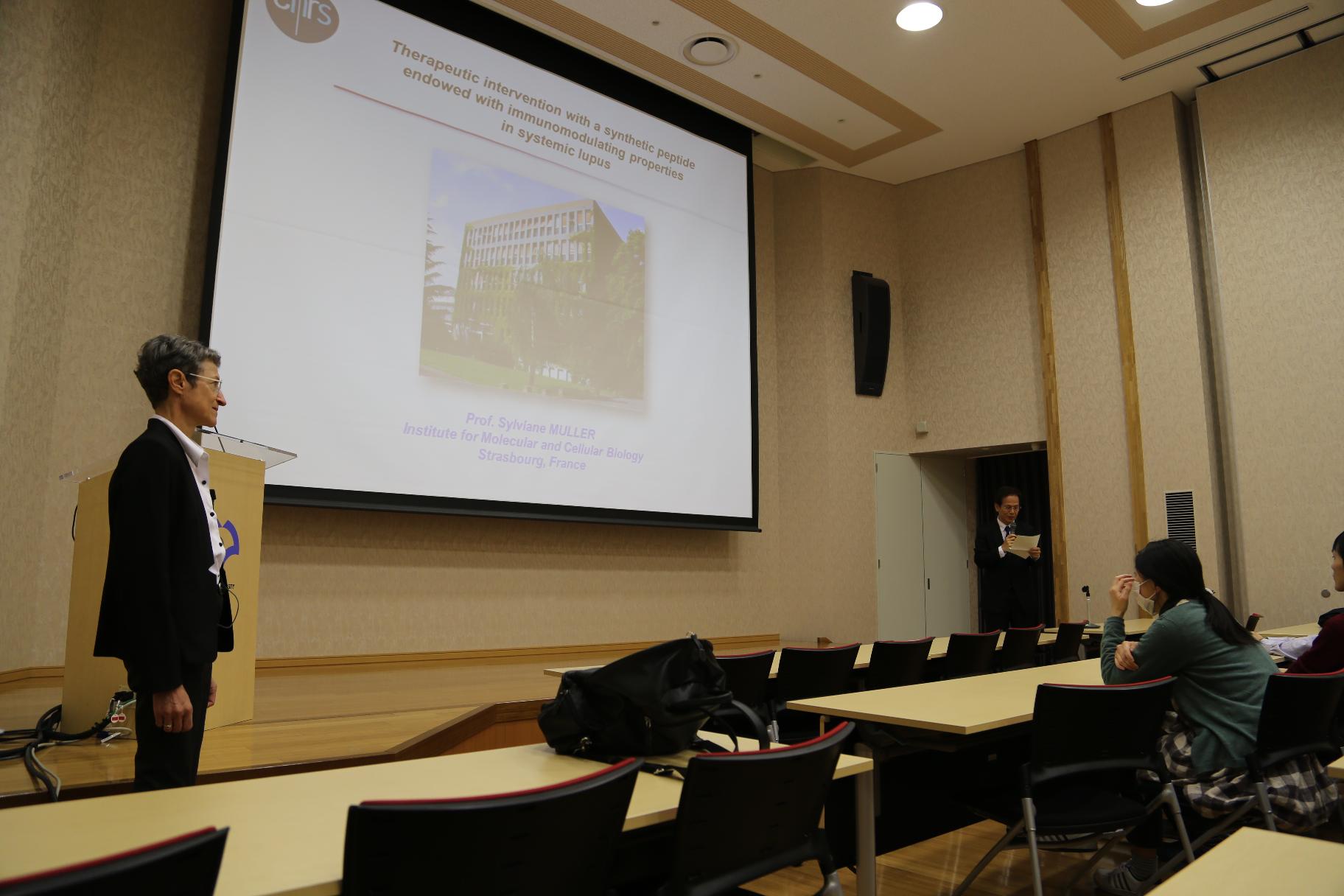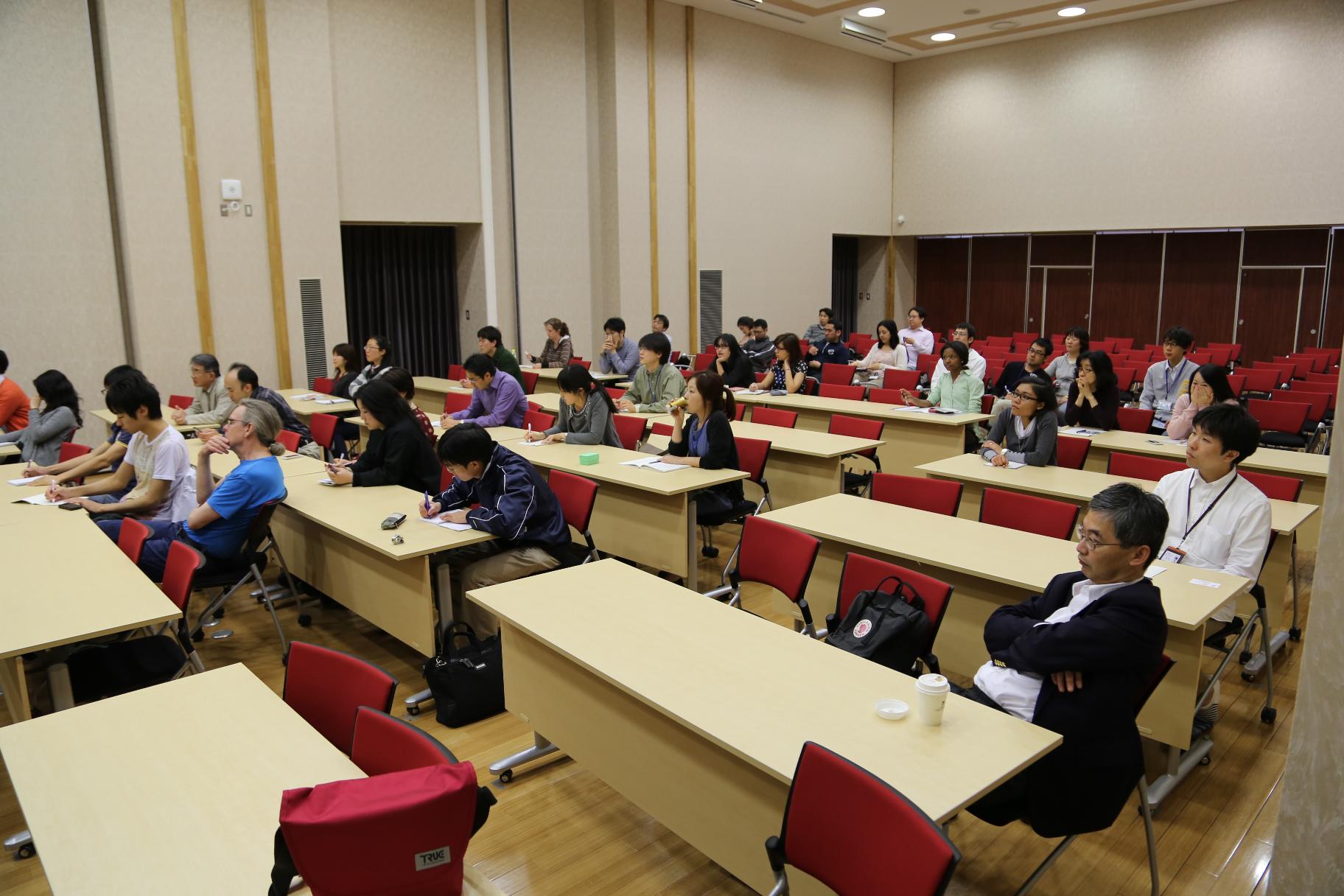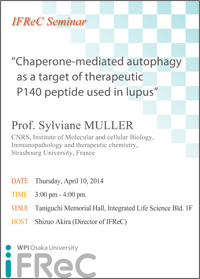News & Topics
Seminar
2014.04.15
Prof. Sylviane MULLER によるセミナーを開催しました。
4月10日(木)、Prof. Sylviane MULLER によるセミナー、"Chaperone-mediated autophagy as a target of therapeutic P140 peptide used in lupus" が開催されました。
| 講演者 | Prof. Sylviane MULLER (CNRS, Institute of Molecular and cellular Biology, Immunopathology and therapeutic chemistry, Strasbourg University, France) |
| 講演タイトル | Chaperone-mediated autophagy as a target of therapeutic P140 peptide used in lupus |
| 日時 | 2014年4月10日(木) 午後3時 - 4時 |
| 会場 | 大阪大学 吹田キャンパス 生命科学融合研究棟1階 谷口記念講堂 |
| ホスト / 連絡先 | 審良 静男 (自然免疫学/IFReC) |
| アブストラクト | In the pipeline of molecules with a potential for treating lupus patients, the P140 peptide holds a lot of promise. P140 is a 21-mer linear peptide (sequence 131-151) derived from the spliceosomal small nuclear ribonucleoprotein U1-70K. It contains a phosphoserine residue at position 140. In a multicenter, randomized, placebo-controlled phase IIb study, P140/Lupuzor was safe and met its primary efficacy end points in lupus patients (Zimmer et al., ARD 2013). These results confirm data generated in MRL/lpr lupus-prone mice in which the preclinical studies were conducted (Monneaux et al., EJI 2003; Schall et al., J Autoimmunity 2012). In this setting, as in human, P140 was shown to behave as an immunomodulator and not as an immunosuppressant. In a step further, our studies demonstrated that the P140 peptide mechanism of action does involve autophagy processes. In a lupus context in which macroautophagy is affected (Gros et al., 2012), P140 readily binds HSPA8/HSC70 chaperone proteins (Page et al., PLoS ONE 2009) and reduces autophagic flux in MRL/lpr B cells (Page et al., ARD 2011). We recently showed that a selective form of autophagy, chaperone-mediated autophagy (CMA), is a key target of P140. By interfering with this particular pathway, P140 peptide may affect the endogenous (auto)antigen processing and the peptide loading to MHCII molecules, and as a consequence, induces a lower activation of autoreactive T and B cells, and a reduction of autoantibodies secreted by plasma cells. Our recent results shed light on mechanisms by which P140 can modulate lupus disease and by which it may operate in humans affected by this disorder that affect more than 5 million individuals in the world. |




